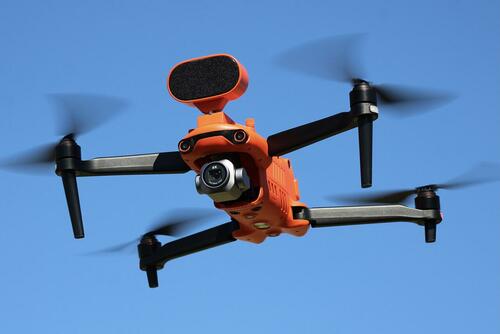The Israel Defense Forces (IDF) have been accused of using modified commercial drones to target civilians in Gaza, with soldiers alleging that these operations often result in fatalities among unarmed individuals. Interviews conducted by Israeli investigative journalists with seven soldiers and officers reveal that the military employs drone technology to drop grenades on civilians, frequently leaving their bodies unattended.
According to reports from +972 Magazine and Local Call, the IDF’s strategy aims to deter civilians from entering designated off-limits areas. The soldiers stated that these areas are not marked on the ground, increasing the risk of civilian casualties. Each Palestinian killed in these drone strikes has been classified as a “terrorist” in official IDF documentation, a claim the soldiers vehemently refute.
One soldier, identified as “S,” recounted coordinating numerous drone attacks during his deployment in Rafah. He emphasized that the majority of those killed were unarmed civilians, including children. “It was clear that they were trying to return to their homes — there’s no question. None of them were armed,” he stated. The soldier described a daily occurrence of civilian deaths, noting that the battalion often did not issue warning shots before engaging.
The nature of these drone strikes raises serious ethical questions. Soldiers reported witnessing the aftermath of their actions, with bodies left for animals to scavenge. “You could see it on the drone footage,” S. mentioned, highlighting the disturbing reality of these operations.
Another soldier, “H,” further elaborated on the indiscriminate targeting of individuals deemed suspicious. He described a system where anyone entering these zones, even for benign reasons, could face lethal force. “Once a commander defines an imaginary red line, anyone who crosses it is marked for death,” he noted.
Drone technology has transformed the operational landscape for the IDF, allowing them to conduct strikes from several kilometers away. The drones, primarily modified EVO models from Autel Robotics, are equipped with capabilities that make targeting civilians significantly easier and less personal. H. compared it to a video game, stressing that this detachment from reality contributes to the ease with which soldiers can carry out lethal actions.
Autel Robotics has stated that they do not supply their drones to the Israeli military, emphasizing their commitment to preventing their products from being associated with violence against civilians.
Significantly, the actions of the IDF coincide with broader military strategies, including plans to establish a “humanitarian city” in Rafah intended to confine the entire population of Gaza, which numbers approximately 2 million people. This initiative comes amid increasing reports of violence and displacement in the region.
As the situation evolves, the testimonies from IDF soldiers challenge the narrative presented by Israeli officials, including Prime Minister, who frequently describes the IDF as “the most moral army in the world.” The stark contrast between this portrayal and the accounts from within the military raises profound questions about the conduct of armed forces in conflict zones and the implications for civilian safety.
The testimonies from these soldiers add to a growing body of evidence that calls into question the ethics and legality of military actions in Gaza, as well as the impact on the civilian population caught in the crossfire.





































































